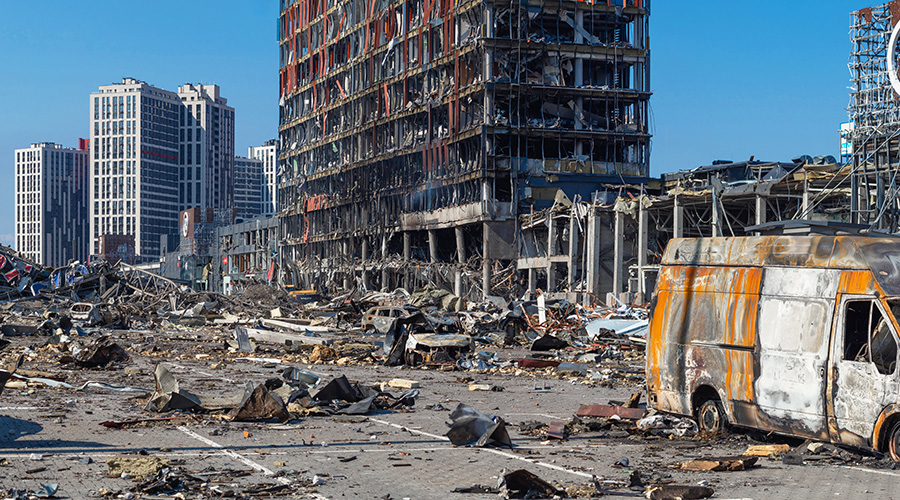U.S. Department of State facility managers are relied upon to ensure continued operations at our overseas embassies and consulates during times of crisis including civil unrest and natural disasters.
Speaker James Libruk begins his presentation at NFMT Baltimore by discussing an attack he witnessed in Ukraine. The intense depiction sets the stage for discussing the critical importance of emergency preparedness in real-life scenarios.
It's important for facility managers to have a clear, actionable emergency plan for both natural disasters and civil unrest. Managers need to know how to identify operational vulnerabilities and undertake contingency planning. Having a comprehensive understanding of a facility's infrastructure and vulnerabilities is critical in order to effectively prepare for and respond to emergencies.
Libruk outlines five practical steps for emergency preparedness:
Prioritizing Family Safety: Ensuring family members are safe and prepared for emergencies so that facility managers can focus on managing the crisis without personal worries.
Emergency Supplies: Maintaining a supply of essential items, such as food and medicine, for at least five days.
Bug-out Bags: Preparing emergency bags with necessary documents and supplies.
Emergency Rally Points: Establishing known meeting places for family and staff in case of an emergency.
Office Supplies: Keeping necessary items in the office to sustain long working hours during a crisis.
A significant aspect of crisis management is the psychological effects. Ensuring basic needs like food, shelter, and security allows individuals to function effectively during emergencies and the facility manager has a role to play in this. In addition, during emergencies, facility managers need to support and reassure staff, as well as foster a culture where it's okay to express vulnerability.
Emergencies are unpredictable so facility managers need to be prepared. Regularly reviewing and updating the plan, as well as conducting training exercises will keep managers fresh and ensure readiness.
Log in to start watching. Not a member? Join today.





